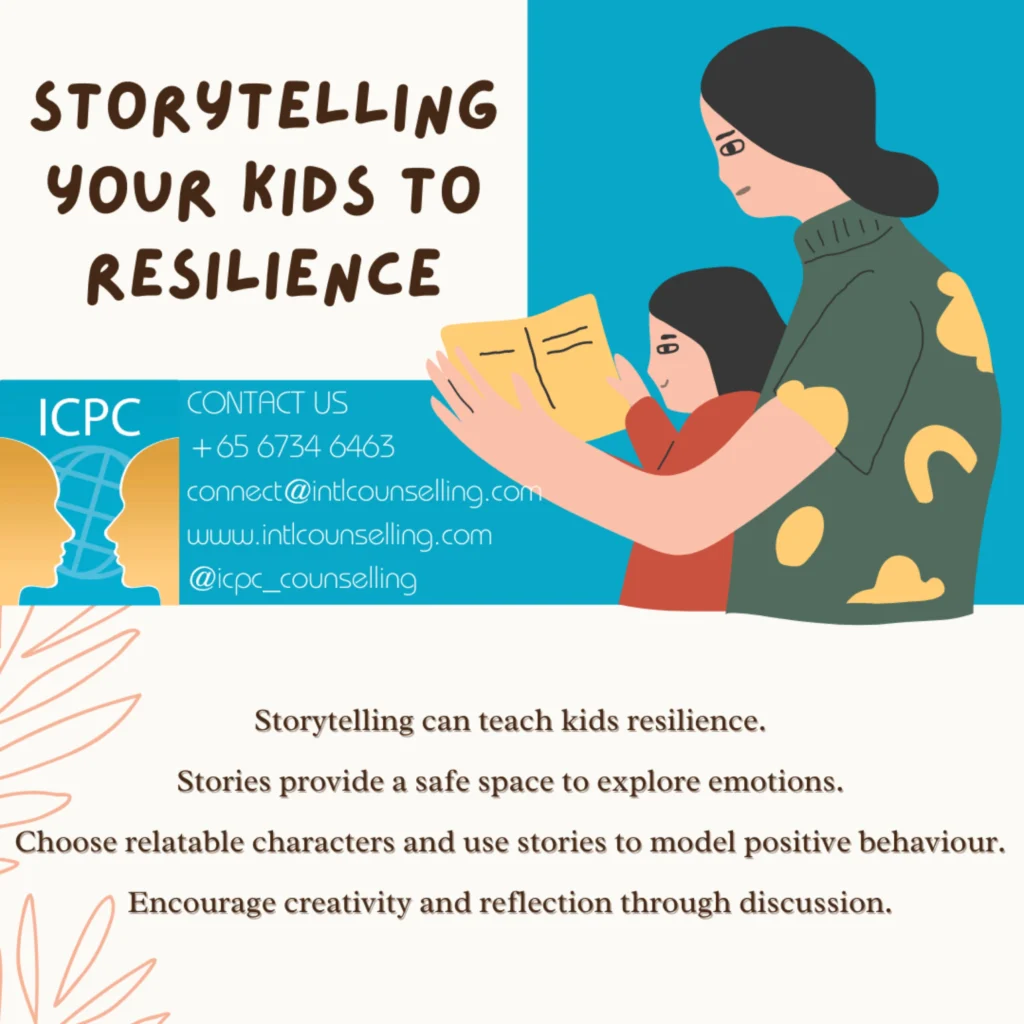
Want A Fun Way To Teach Kids About Resilience? Storytelling.
What are some of your favorite stories from your childhood that taught you about resilience?
Resilience is an important skill for kids to develop as they face life’s challenges.
One effective way parents and caregivers can teach children about resilience is through storytelling:
-
- Resilience is a skill that can be taught and developed in children.
- Stories provide a safe space for children to explore difficult emotions and help them develop coping mechanisms for when they encounter difficult situations in real life.
- Parents and caregivers can use storytelling to teach kids resilience in a fun and engaging way.
How to Teach Kids Resilience Through Storytelling:
-
- Choose stories that feature relatable characters and situations that children can identify with: Children are more likely to engage with a story if they can see themselves in the characters.
-
- Use stories to model positive behavior: Stories can be a powerful tool for modeling positive behavior. Choose stories with characters who demonstrate resilience, empathy, and problem-solving skills, and use these stories to teach kids about these positive traits.
-
- Create opportunities for discussion: After reading a story, create opportunities for discussion. Ask open-ended questions that encourage children to reflect on the story and its themes. This can help children develop a deeper understanding of the story and its message.
-
- Encourage creativity: Storytelling can also be a fun and creative activity for kids. Encourage children to create their own stories, either by writing them down or telling them aloud. This can help children develop their imaginations and build their storytelling skills.
How can parents and caregivers identify when a child is struggling with resilience and how can they use storytelling to address this?
What are some ways to encourage children to create their own stories and build their storytelling skills?
Teaching kids resilience through storytelling is a fun and engaging way for parents and caregivers to help children develop important life skills. If you’re looking for more help or ways to support your child’s emotional well-being, contact our mental health professionals today.
